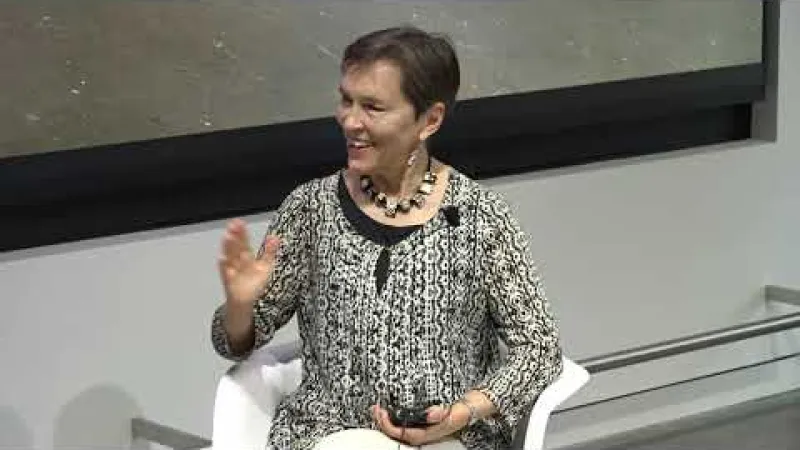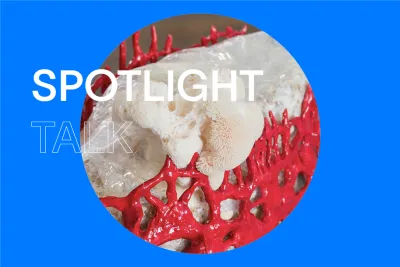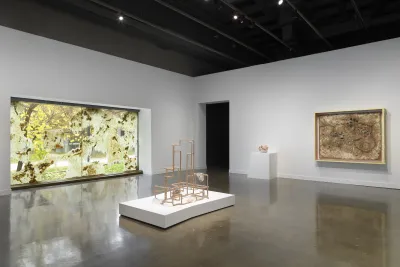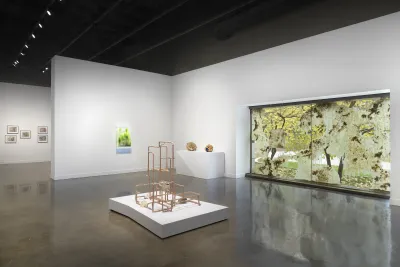Syn /\ Sym: Biology in Art & Design
The MIT Museum and MIT List Visual Arts Center concurrently explore Bio Design and Bio Art respectively, using different lenses to examine the contemporary revolution in synthetic biology.
Gene Cultures, on view at the MIT Museum, parallels the science and technology of these transformative innovations relating how artists are utilizing biotechnologies in creative and sometimes critical ways. It brings together researchers and artists to reflect on what is at stake with the ability to alter life and nature. At MIT List Visual Arts Center, Symbionts: Contemporary Artists and the Biosphere foregrounds the work of artists who aim to decenter the human in their radical approaches to working with living material, underscoring our collaborative and mutually dependent relationships with more-than-human species. Focusing on these distinct approaches to understanding the place of humans in the planetary biosphere, this conversation will open up provocative considerations of ethics, epistemology, and how we envision our relationship with other life forms. Exhibition curators Caroline A. Jones (Symbionts) and William Myers (Gene Cultures) will be joined by Jens Hauser, a media studies scholar, curator, and writer, in a panel discussion to explore the contemporary Bio Art through these overlapping but divergent discourses.
Access the livestream on Saturday, November 5 from 2–3:30 PM EDT.
Panelists
Caroline A. Jones is Professor in the History, Theory, Criticism section of the Department of Architecture, also serving as Associate Dean for Strategic Initiatives in the School of Architecture and Planning at MIT. She studies modern and contemporary art, with a particular focus on its technological modes of production, distribution, and reception, and on its interface with sciences such as physics, neuroscience, and biology. Her essays on modern and contemporary art have appeared in journals ranging from Artforum to Critical Inquiry to Science in Context; she is solo author of several books and exhibition catalogues, and a co-editor of volumes that examine technology and the senses, art and neuroscience, and art history and history of science as parallel inquiries. Collaborative work with historian of science and physicist Peter L. Galison will culminate in a book on scientific and viral images of environmental harm, titled Invisibilities: Seeing and Unseeing the Anthropocene (forthcoming with Zone Books at Princeton University press). Her research has been supported with fellowships from the Guggenheim Foundation, the National Humanities Center, the Institute for Advanced Studies, the Radcliffe Institute, the Wissenschaftskolleg zu Berlin, the Max Planck Institute, the National Endowment for the Humanities, the Social Science Research Council, and other foundations interested in interdisciplinary inquiry emerging from art history. Jones was part of the curatorial team for Symbionts: Contemporary Artists and the Biosphere, accompanied by a publication from MIT Press, October 2022.
William Myers is the Founding Director for the Museum of 21st Century Design. He is an Amsterdam-based curator and teacher with more than 20 years experience in the cultural sector, including a decade at the Museum of Modern Art (MoMA). Myers is the author of Biodesign (MoMA, 2018) and Bioart (Thames & Hudson, 2015) and organizer of more than 15 exhibitions on a range of topics, from the potential of biotechnology to revolutionize design to the impacts of artificial intelligence on creative practices. William has lectured at learning institutions worldwide and has worked for the Guggenheim Museum, MIT Museum, Cooper-Hewitt Smithsonian Design Museum, RISD, The New Institute in Rotterdam, Vitra Design Museum, Science Galleries in Dublin and Rotterdam, TU Delft, and MU Artspace in Eindhoven, among others.
Moderator
Jens Hauser is a Paris and Copenhagen based media studies scholar and art curator focusing on the interactions between art and technology. He is currently a professor in art history at the Karlsruhe Institute of Technology (KIT), a researcher at University of Copenhagen’s Medical Museion and École Polytechnique Paris-Saclay, a senior postdoc researcher at the Medical University Vienna, and a distinguished affiliated faculty member at Michigan State University, where he co-directs the BRIDGE artist in residency program. Hauser has been the chair of the European Society for Literature, Science and the Arts’ 2018 conference in Copenhagen. At the intersection of media studies, art history and epistemology, he has developed an aesthetic and epistemological theory of biomediality as part of his PhD at Ruhr University Bochum, and also holds a degree in science and technology journalism from Université François Rabelais in Tours.




